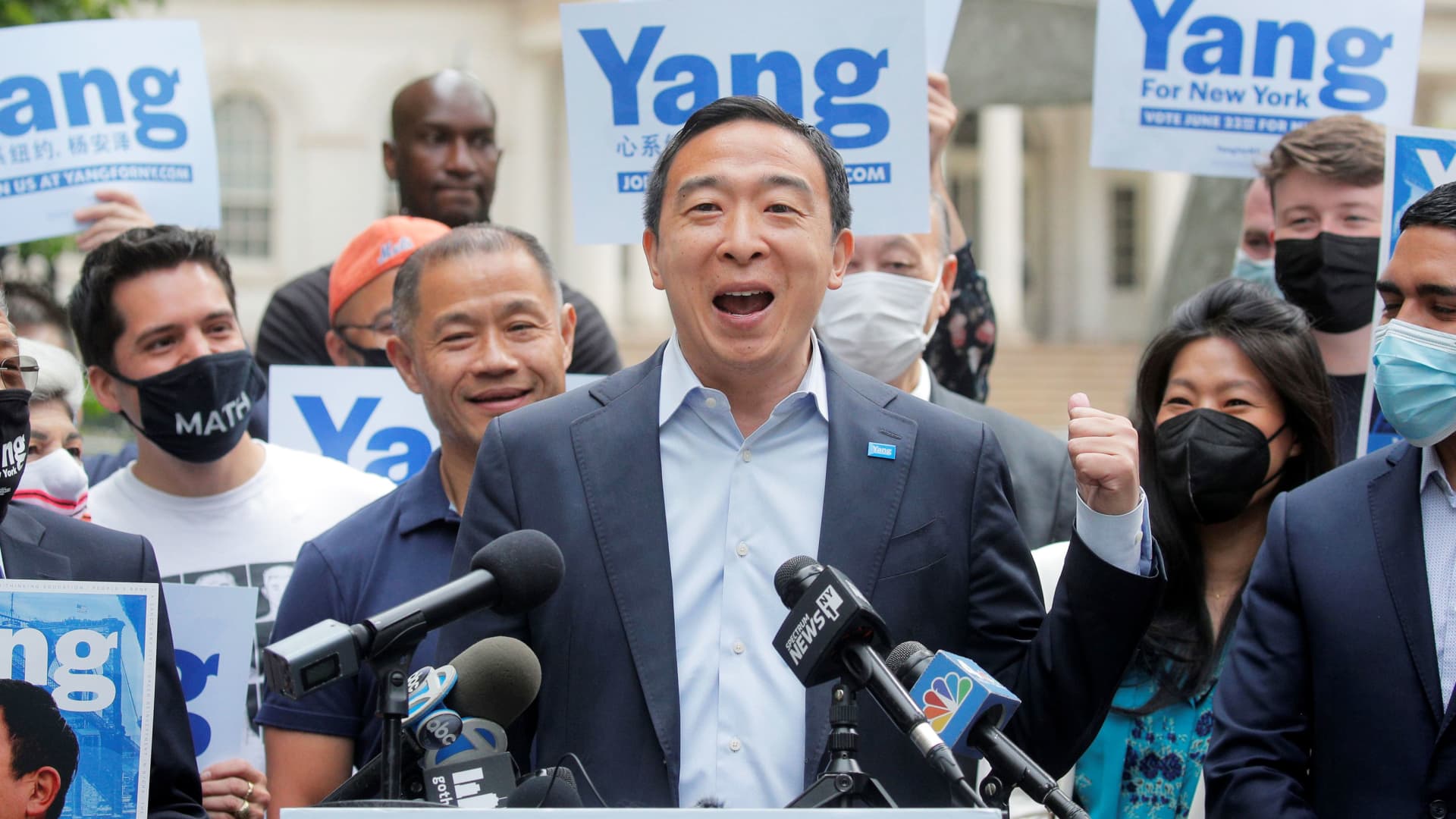
MIAMI — Former presidential candidate Andrew Yang says that Covid stimulus checks are not to blame for the recent inflation spike — and he’s still in favor of sending people free cash as a way to insulate workers from economic shocks and technological disruption.
The universal basic income (UBI) evangelist told CNBC on the sidelines of the Bitcoin Miami conference that stimulus checks comprise “maybe 17%” of the money issued with the CARES Act — a measure passed by Congress to unlock trillions of dollars in stimulus funding to shore up the economy amid worldwide lockdowns.
“Where did the other 83% of the money go? It went to institutions. It went to pipes,” said Yang, who ran for New York City mayor and U.S. president on a platform advocating for guaranteed monthly payments from the government to all citizens age 18 to 64, with no strings attached.
“Money in people’s hands for a couple of months last year — in my mind — was a very, very minor factor, in that most of that money has long since been spent and yet you see inflation continue to rise,” said Yang, who also pointed out that prior to the pandemic and Economic Impact Payments, the primary drivers of inflation were staples such as education, health care and housing, all of which were independent of stimulus checks.
Consumer prices rose 8.5% in March, reflecting increases not seen in the U.S. since 1981. The surge in inflation, according to Yang, has a lot to do with the fact that there aren’t enough goods to go around, so people are experiencing pent-up demand.
“Everyone is concerned about inflation. I’m concerned about the fact that it’s making a lot of Americans’ lives miserable, because it’s a very difficult circumstance when your expenses are climbing, and maybe your income isn’t keeping pace,” said Yang, who has also said that web3 is the most profound opportunity to fight poverty.
The erosion of the dollar’s spending power has led some to make the case for bitcoin as a hedge against inflation.
“I think that the interest level is going to rise as people do seek alternatives in terms of how to store value,” Yang said of bitcoin. “People know if you just have a bank account full of money, unfortunately, that’s losing value right now, unless you’re getting paid above the rate of inflation, which is, what 7%, nowadays,” said Yang.
“Last I checked, savings accounts were still only paying 1% or 2% max.”
Where bitcoin meets UBI
Cryptocurrencies like bitcoin aren’t just an inflation hedge, according to Yang. They could also help realize his grand vision for widespread UBI roll-out.
“The intersection is very significant, because if you’re trying to get buying power in people’s hands, one tool to do so is the U.S. dollar, and I ran for president on making that case, but there’s no reason why it necessarily needs to be in U.S. dollars as opposed to bitcoin, or some other asset class or currency,” said Yang. He thinks we’ll see new currencies emerge from the public sector.
“You can have municipalities and communities experimenting with local currencies that will help drive people to local small businesses and nonprofits that may not be getting the support that they need right now,” he said.
Similar to how Beijing is considering attaching expiration dates and other spending rules to its digital yuan (China’s central bank digital currency which has been in development since 2014), Yang says a similar model could work well in the U.S.
“No one thinks about getting a U.S. dollar, and it’s going to expire, or it can only be used in one place and not another. But these are utilities that we should be experimenting with in different settings right now,” said Yang.
During the pandemic, Mark Cuban suggested doing just that: Sending cash cards that can only be used at locally owned small businesses, where the money expires in two weeks, in order to drive activity. Yang says that those are the kinds of things that “cryptocurrencies very naturally enable that U.S. dollars don’t.”







